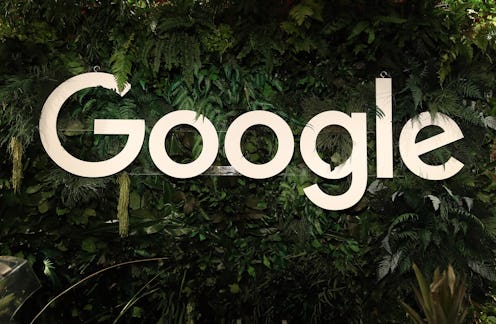News
Dear Google Manifesto Writer, A Woman Is More Than Her Ovaries

There are many, many problems with the anti-feminist, anti-diversity manifesto written by Google software engineer and published over the weekend. The screed is wrong about policy initiatives that aim to promote gender diversity, it is wrong that women-only initiatives leave "swaths of men without support", and it is also wrong that gender diversity programs can "incentivize illegal discrimination." But one of the more striking issues of the screed is that the software engineer completely misunderstands what a woman is — because the category of "woman" is far more complex than a superficial glance might suggest.
The manifesto, titled “Google’s Ideological Echo Chamber," asserts that women are compensated less and promoted less frequently in the tech industry due to biological differences. "Women on average show a higher interest in people and men in things" the author argues. This notion, that the biological differences between men and women are the causes of all gender disparities, is a line of thinking which is often called "essentialism." It is a wrong-headed, pseudo-scientific understanding of women (and men).
Societies lose when they stifle identity.
The manifesto writer, who has not been identified, goes on to list personality differences between men and women that the writer believes are caused by biological differences. "Neuroticism (higher anxiety, lower stress tolerance) ... may contribute to the higher levels of anxiety women report on Googlegeist and to the lower number of women in high stress jobs," the writer notes, attempting to blame women's "biology" for their own lack of success in the tech industry.
The engineer adheres to the essentialist argument so closely that he put forward this head-scratching argument: "Biological males that were castrated at birth and raised as females often still identify and act like males." Thinking this way, that all people can be reduced to their chromosomes, enables traditional, more narrow ways of thinking. Easy categorization begets quick classification, which brings order to the world. But as evidenced by transgender community, gender and sex are not simple matters. Societies lose when they stifle identity.
“One is not born, but rather becomes, a woman”
The Google manifesto-writing software engineer does acknowledge that some of the differences between men and women may be socially based, but the engineer relies so heavily on gender essentialism, its difficult to see any other line of thinking. "At Google, we’re regularly told that implicit (unconscious) and explicit biases are holding women back in tech and leadership," the employee wrote. "Of course, men and women experience bias, tech, and the workplace differently and we should be cognizant of this, but it’s far from the whole story." This idea, that women are not defined by their ovaries but by their social upbringings, is often called social constructivism. (A simple way to describe that school of thought is: if you love the famous line from Simone de Beauvoir's The Second Sex — “one is not born, but rather becomes, a woman” — you probably belong in the social constructivist camp.)
Definitions of womanhood that focus on the social architecture of a "woman" are popular now among left-leaning thinkers, human resources experts, and social-justice warriors alike. But some — conservatives, especially — deny that a "woman" is a social category because it's far more comfortable to believe in "biological truths" than judge a person through the complex lens of their background, individual personality, and other social factors.
One would think that the engineer wrote this memo to make the company better in some way, so which direction is better for a fast-growing, experimental environment like Google? A binary way of thinking based on out-dated "truths," or a nuanced way of thinking that is always evolving?